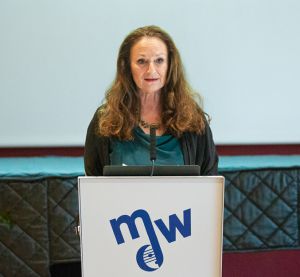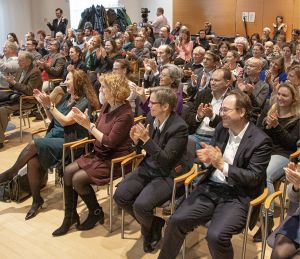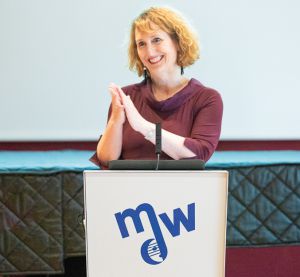On 29 November 2019, the Music and Minorities Research Center (MMRC) was formally and festively opened following a several-month conceptual phase. All this came in the wake of Ursula Hemetek’s 2018 Wittgenstein Award for her pioneering work in the area of sociopolitically relevant ethnomusicological minority research. She dedicated her prize money of 1.4 million Euros to this research centre so that it would be anchored in a sustainable manner, toward which the initial steps have now been taken.

Hemetek and her team first set about conceiving the MMRC, a project that ran from May to November 2019. In doing so, they focussed above all on the task of defining central concepts as well as guidelines for research, initial emphases, and the Center’s fundamental structure. Of great significance is the Center’s international orientation, for which reason an advisory board is being installed that will include renowned ethnomusicological minority research specialists from four continents. This advisory board made a major contribution to the Center’s conception and will now be continuing its advisory work.
The MMRC’s definition of the term “minority” is quite broad and encompasses all of those marginalised groups and individuals who experience discrimination in a given society. This definition remains subject to discussion because the relevant social conditions are in constant flux, for which reason its adaptation may be necessary at some point.

The defined guidelines for research at the MMRC can be considered quite progressive when viewed together within the international mainstream of the ethnomusicological field. The Center practices what is known as engaged musicology, a type of research that also looks for ways to reach a (listening) audience beyond the university realm. In this, it also seeks to contribute to the reduction of xenophobia, racism, and violence via forms of cultural expression—in particular music.
Ethnomusicologists’ work concerns human beings and their music in equal measure. And the MMRC understands field research to be a process that encompasses various types of pre-existing knowledge—on the part of both research partners and re searchers—that flow into the research being done in an egalitarian manner. This second principle is referred to as dialogic knowledge production.
A third important aim of the MMRC is to counter imbalances in terms of power. The research team, conscious of how factors such as structural racism, colonialism, and heteronormativity generate and sustain power imbalances in realms including that of music, rethinks ethnomusicological theories and methods with an eye to both highlighting and avoiding approaches that support such structures. All research projects set to take place in the future at the MMRC adhere to these three basic principles.

The general research question for all projects at the MMRC is: What are the (constantly changing) meanings and values of music by and for marginalised groups and individuals?
The specific themes in play for the near future, which have been selected based on their political currency and on the expertise that is present, are music and migration/displacement in the urban space of Vienna and the music of the Roma. These two themes have already been dealt with in research projects at the Department of Folk Music Research and Ethnomusicology, for which reason future work can build upon solid findings.

Alongside the planned research projects, which are to be conducted above all by early-career researchers in the interest of ensuring the Center’s sustainability, there are also plans for a journal and an annual MMRC Lecture that will be interwoven with one another thematically.

